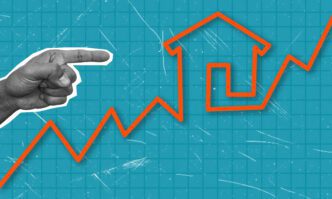In November, Florida’s consumer sentiment reached its highest point in over three years, marking a significant 3.7-point rise to 81.1, as reported by the University of Florida’s study. This surge outpaced the national sentiment, which saw a marginal increase. The study highlights Floridians’ optimistic views on their personal finances and the broader national economy over the coming year and five years.
Hector H. Sandoval, director of the Economic Analysis Program at UF’s Bureau of Economic and Business Research, noted that the increase in consumer sentiment is the most substantial in more than three and a half years. This optimism is primarily driven by improved expectations for personal finances and the national economy. Notably, the outlook on the national economy has reached levels not seen since early 2020, just before the pandemic.
This marked change in sentiment follows the national presidential election, where President-elect Donald Trump secured 56.1% of the Florida vote. Traditionally, elections that result in a party change in office boost consumer sentiment among those whose political alignment matches the winning party. Furthermore, the Federal Reserve’s decision to cut interest rates by a quarter-point this month, in response to inflation nearing its 2% target, further reduced borrowing costs, contributing to the positive outlook.
Each of the five components of Florida’s consumer sentiment index showed improvement. Floridians expressed more favorable views on current economic conditions, with perceptions of their personal finances compared to the previous year rising by 3.6 points. Likewise, opinions on whether it is a good time to purchase major household items rose by 3.2 points. These views were generally positive across all sociodemographic groups, with the exception of men, who demonstrated less favorable spending intentions.
Future economic expectations were particularly optimistic. The expectation for personal finances a year from now rose 4.6 points, the largest increase of any index component. Similarly, the expectation of U.S. economic conditions over the next year rose 3.8 points. Over the next five years, views of the national economy increased by 3.7 points. These optimistic views were consistent across most sociodemographic groups, although women reported slightly more pessimistic views regarding the national economy in the short term.
Sandoval commented on these trends, noting the timely increase in consumer sentiment aligns with the holiday shopping season, indicating promising growth in retail sales. This is welcome news for retailers statewide, especially with the significant increase in consumer spending intentions. As the year ends, a modest improvement in consumer sentiment is expected, although the upcoming government transition introduces some uncertainty. Key economic indicators such as consumer sentiment and stock market performance will be crucial in evaluating the economy through this transition and assessing the impact of the new administration’s policies.
The UF study conducted from October 1 to November 26 involved 619 participants, reached via cellphones and an online panel, and represents a demographic cross-section of Florida. The consumer sentiment index is benchmarked to 1966, with a value of 100 indicating the same level of confidence as that year.
The spike in Florida’s consumer sentiment is a promising sign of economic confidence among Floridians, driven by favorable views on personal finances and the national economy. However, the transition of government leadership and its ensuing effects pose uncertainties that bear watching. Continued monitoring of consumer sentiment and other economic indicators is necessary to gauge the state’s economic climate in the coming months.








